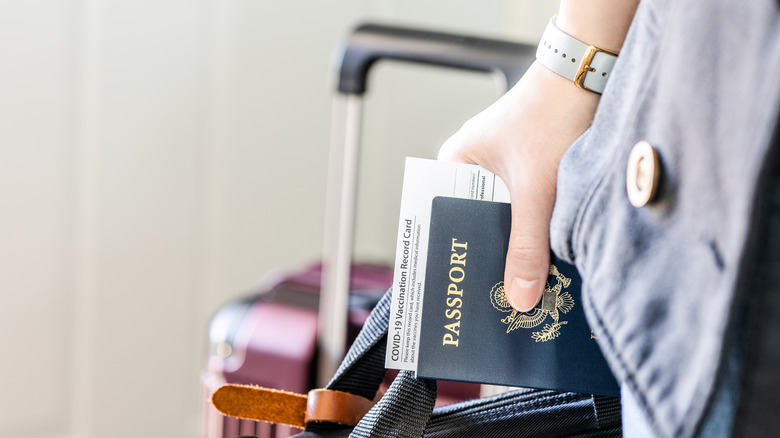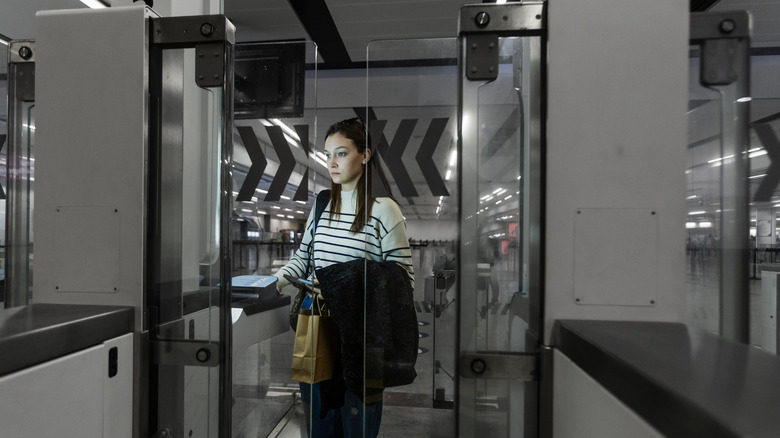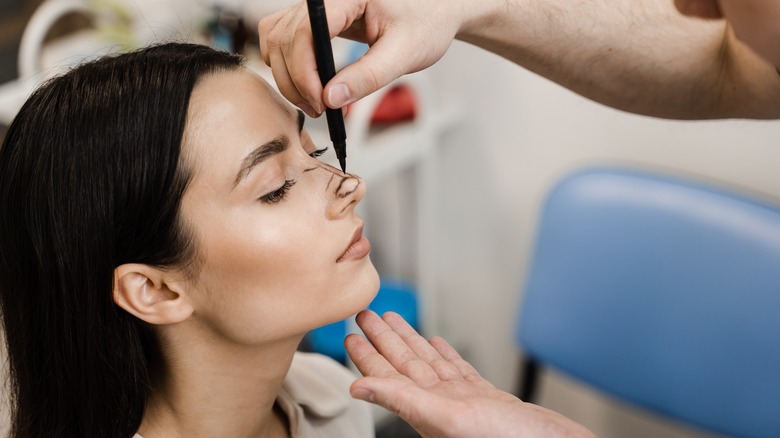Do You Actually Need To Get A New Passport After Having Plastic Surgery?
While plenty of great vacation spots don't require a passport, you will eventually need one if you want to broaden your travel horizons. Normally, you have 10 years before you need to renew the document, but you might have to shell out the cash for a new one if you undergo plastic surgery during that period. It all depends on the type of surgery you get and how much it modifies your underlying facial structure compared to how it looked when you had your picture taken.
Passport control seems to realize that people may look different than they do in their passport photo if several years have passed. However, the U.S. State Department confirms that you'll need to update it if you've had "significant facial surgery or trauma." The reasons extend beyond security officers noticing a discrepancy between your current appearance and your passport picture and into the realm of science.
Many airports use computers to analyze faces
Increasingly, passport control relies on biometrics and facial recognition software to determine that your identity matches who you claim to be. If you've received a U.S. passport since August 2007, it will have a chip embedded in it. That chip stores data, including from your passport photo. The airport computers use the facial geometry from your passport picture to confirm your ID. "It includes the distance between the pupils, ears, nose and mouth, the mouth's and the eyes' width, and many others," Karolina Turowska, a biometric photography and travel expert for Passport-Photo.Online explained to Buzzfeed. So, if you transform those markers via surgery, the computer may no longer perceive you as the same person. You also can't smile in passport photos due to those biometrics.
Plastic surgery procedures most likely to cause problems for airport computer systems include nose jobs, jaw surgeries, and brow lifts. Fillers and Botox probably won't cause as many problems at passport control, though it depends on how much they alter the proportions of your face. Medical procedures other than plastic surgery can dramatically change your appearance. Significant weight loss may impact the look of your facial structure even if you haven't had any work done in that area, so something like gastric bypass surgery could cause enough differences to warrant an updated photo. Check with your doctor if you have any doubts.
Get a doctor's note if your surgery significantly changes your face
Multiple stories of travelers getting stopped at the border and struggling to confirm their identities after undergoing and recovering from plastic surgery have popped up. Or you might travel abroad specifically to get plastic surgery, which means you would not have the time or ability to update your passport before your return trip — especially if parts of your face still need time to heal. If you've recently gone under the knife and know that you might receive questions about your new look, ask your doctor to write a note explaining that you might appear different than your ID photo.
Airports can cause enough stress on their own without having to worry about customs preventing you from flying home. It's a hassle to pay for and wait for your new passport to show up, but it beats TSA pulling you aside for additional screening. When you do get a replacement, remember to hold on to your old passport.


